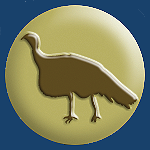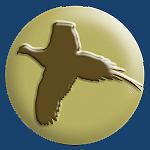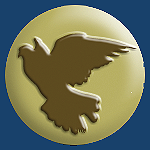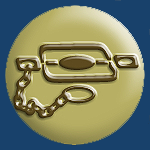Getting Started
Hunting Opportunities in Illinois
Hunting is an important wildlife management tool that maintains the health and abundance of game species and the balance of our natural resources. Hunters play an important role in managing wildlife and it is their tax dollars paid through the Pittman-Robertson Federal Aid in Wildlife Restoration Act and hunting licenses and fees that pay for the majority of wildlife management by the IDNR.
Your best resource for hunting and trapping information is the most recent Illinois Digest of Hunting and Trapping Regulations.
- 1. Who can hunt in Illinois?
- 2. Where can I hunt in Illinois?
- 3. What can I hunt in Illinois?
- 4. When can I hunt in Illinois?
- 5. What permits or licenses do I need to hunt in Illinois?
- 6. What are legal hunting devices, ammunition restrictions and other Laws?
- 7. What am I required to wear?
- 8. Trapping Opportunities in Illinois
- 9. Who Must Take the Trapper Education Course?
- 10. Where can I trap in Illinois?
- 11. What can I trap in Illinois?
- 12. When can I trap in Illinois?
- 13. What do I need to trap in Illinois?
- 14. How does the Protect Illinois Communities Act affect hunting in Illinois?
- Illinois allows hunting for both Residents and Non-Residents
- There are also special hunting opportunities/privileges for youth, seniors and disabled hunters
- Illinois provides an Apprentice License for first-time hunters
- Residents 18 years old and under may purchase a Youth Hunting and Trapping License.
- IDNR has Public Hunting Areas designated at many of our sites. A windshield card might be required before you hunt at one of the public hunting areas. A site-specific permit might be required to hunt in one of these areas as well. Please see the hunter fact sheet to ensure you have everything you need.
- To find out which species can be hunted at which Windshield Card sites, go to the Windshield Card Sites page.
- Illinois Recreational Access Program offers hunting sites on private land in several counties throughout Illinois
- Hunting is also allowed on private land with the permission of the landowner. Land Access Permission Card can be found here.
- Check out the Public Hunting Areas Reports from the previous hunting season to see the harvest results on public land sites.
Most species have specific hunting and trapping seasons throughout the year. The Digest of Hunting and Trapping Regulations lists the different hunting and trapping seasons. Many hunters need to plan vacations and hunting trips in advance of the annual distribution of the Digest of Hunting and Trapping Regulations. For such planning purposes, here are the general rules of thumb used for setting annual season date.
- Many of our licenses and permits can be purchased online. This is the preferred method. Paper application should be used as a last resort.
- Find your nearest vendor that sells over-the-counter licenses and permits.
- Consolidation of the majority of IDNR commercial licenses/permits have been changed to one end date (March 31). Due to the change, IDNR will be selling Illinois hunting/trapping/fishing licenses beginning on March 1, instead of selling them beginning in mid-January. The licenses will be valid through March 31, of each year.
- List of licenses, permits and stamps by category
- In general, anyone wishing to hunt in Illinois is required to purchase a hunting license. There are some exceptions to this requirement.
- Anyone born after January 1, 1980, will need to complete a Hunter Safety Education Course before obtaining a hunting license. Proof of completion must be available while hunting.
- In most cases, an electronic state habitat stamp is also required (license ID #970).
- Waterfowl hunters will also need both the electronic state waterfowl stamp (license ID #600) and the federal waterfowl stamp (license ID #900) (federal waterfowl stamps may be purchased at US Post Offices or selected DNR offices).
- If you are hunting migratory game birds i.e.: doves, ducks, geese, snipe, woodcock, coots or rails you will need to register for the HIP (Harvest Information Program).
- In addition to the license and stamps, species-specific permits might also be needed.
- Hunters wishing to use firearms need to obtain a Firearm Owner Identification Card (FOID) from the Illinois State Police.
- Lost or damaged permits can be replaced or corrected
- It is unlawful to hunt any protected species except with a gun or bow and arrow.
- Various species and seasons have restrictions on hunting devices and ammunition.
- Concealed Carry Q&A
- Purple Paint Law
- A solid blaze orange or blaze pink cap/hat and an upper outer garment displaying at least 400 square inches of solid blaze orange or blaze pink material must be worn:
- To hunt deer during all firearm deer seasons.
- To track wounded deer with a dog during all firearm deer seasons.
- By individuals accompanying youth during youth firearm deer hunts.
- To hunt deer during all firearm deer seasons.
- Camouflage blaze orange or camouflage blaze pink material does not meet the requirements. You cannot legally use or occupy a ground blind during any firearm deer season on IDNR-owned or -managed land unless at least 400 square inches of solid, vivid blaze orange or blaze pink material is securely attached to the uppermost portion of the blind and a substantial amount of orange or pink is visible for 360 degrees.
- Archery Turkey Hunting during a Firearm Season - when and where it is legal to archery turkey hunt during any gun deer season, archery turkey hunters must comply with the same blaze orange or pink requirements as gun deer hunters.
Trapping plays an important role in the ecology and conservation of Illinois' furbearers - mammals that are hunted and trapped primarily for fur.
If you are starting out in trapping, it is recommended that you take the Illinois Trapper Education Course or complete the online course at TrapperEd.com.
- As of January 1, 2017 anyone born on or after January 1, 1998, is required to complete an Illinois Trapper Education Course before purchasing a trapping license.
- Some properties owned or managed by IDNR offer trapping opportunities.
- Trapping can occur on private property if a landowner or tenant grants permission to do so. It is best to keep a signed Land Access Permission Card with you while trapping on private land. Permission must also be obtained from anyone living within 100 yards of where traps are set. This requirement often limits opportunities to trap in residential areas. Trapping along roads or other public right-of-ways is prohibited.
- Badger, beaver, bobcat, coyote, gray fox, mink, muskrat, opossum, raccoon, red fox, river otter, striped skunk, weasels, and woodchuck.
Most species have specific trapping seasons throughout the year. The Digest of Hunting and Trapping Regulations lists the different trapping seasons.
- In most cases, a trapping license and habitat stamp are required to trap in Illinois. See the Digest of Hunting and Trapping Regulations for exceptions.
- Consolidation of the majority of IDNR commercial licenses/permits have been changed to one end date (March 31). Due to the change, IDNR will be selling Illinois hunting/trapping/fishing licenses beginning on March 1, instead of selling them beginning in mid-January. The licenses will be valid through March 31, of each year.
The Protect Illinois Communities Act banning assault weapons creates an exemption for possession of firearms used for hunting as permitted by the Wildlife Code. To determine whether it is legal to bring a firearm onto public lands to hunt, you must be in full compliance with the Wildlife Code and administrative rules for the hunting activity that you are engaged in. The Illinois State Police, in consultation with IDNR, is creating a list of firearms permitted to be used for hunting pursuant to the Protect Illinois Communities Act and the Wildlife Code. Under the Protect Illinois Communities Act, this list must be finished by Oct. 1, 2023. Even though the list is not completed at this time, it is important to emphasize that the exemption from the assault weapons law is tied to the Wildlife Code and that code has not been changed by this Act. If it was legal under the Wildlife Code to use a specific type of firearm last year to hunt snow geese or turkeys, for example, then it is currently legal to use that weapon this year.








